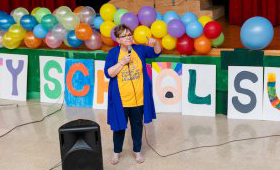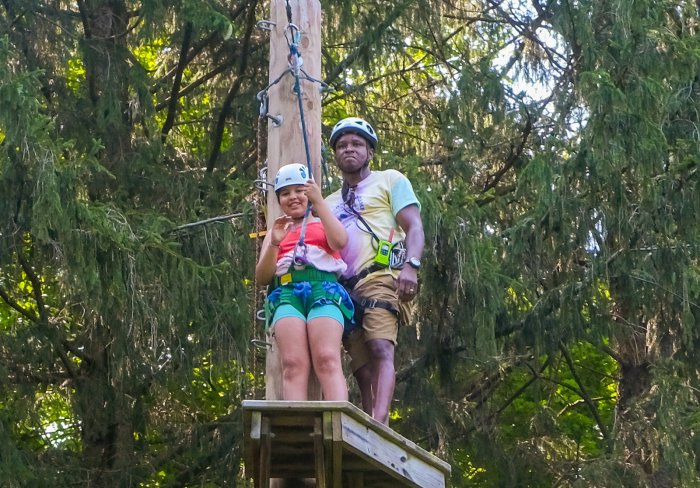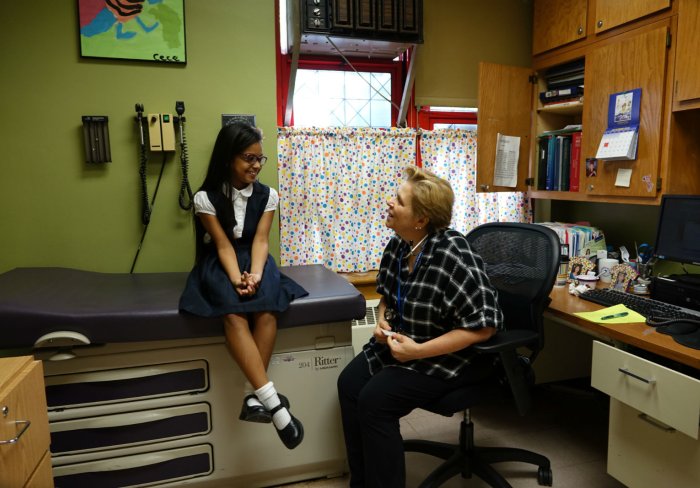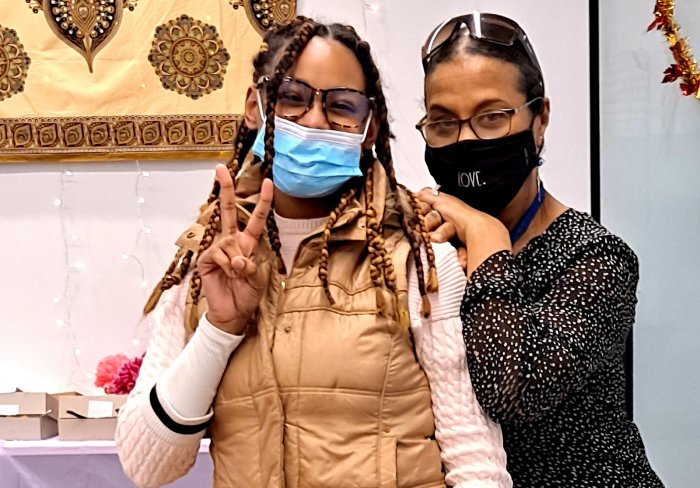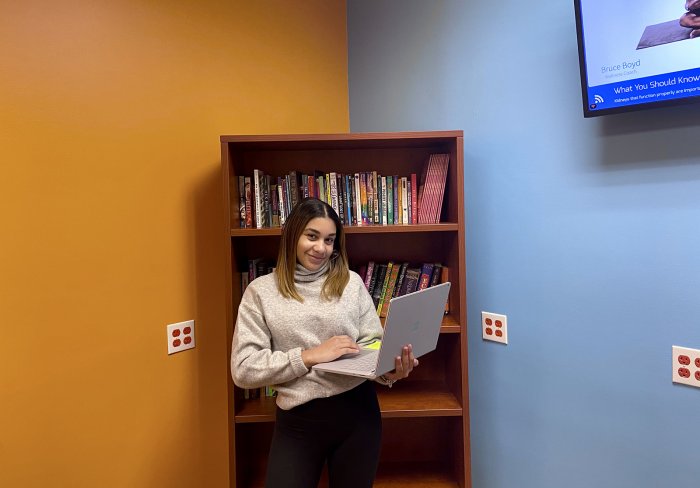As a family advocate at P.S. 152, Eileen Gonzalez built strong relationships with the parents and caregivers of students at the Washington Heights school.
She used her experience as a mother of young children to cater to her families and anticipate their needs. In 2017, she began a male involvement group at the Early Childhood center after noticing that mothers were often the ones who discussed their children’s progress with teachers and school administrators.
“We have to encourage men to get involved and break the stigma,” she said. “The group was used to explain developmental milestones, what is being taught in the class, and the importance of a male figure in a child’s life whether it’s a father, grandpa, uncle, older male cousin. That’s how everything started.”
While Eileen led many of the discussions, she also invited other Children’s Aid staff to share their expertise. Family psychologist Andy Seltzer helped men process their emotions, and staff in our Health & Wellness team made healthy breakfasts and talked to the men about nutrition.
The group also met outside of the classroom for bowling nights and to watch the Christmas tree lighting at Rockefeller Center. The men grew closer and felt comfortable seeking out Eileen for advice on how to be supportive fathers and partners.
“It was great to be able to provide that hospitable environment for fathers to talk about what’s on their minds and what they’re feeling,” she said.
The pandemic forced Eileen to stop the meetings for more than two years, though she still kept in touch with many of the participants. During that break, Eileen earned her bachelor’s degree and accepted a new position as a case planner in the Bronx.
But Food Services Manager Kent Williamson was inspired by what he saw at these meetings and decided to restart the group with the help of a new team of Children’s Aid staff members. Last month, as part of Men’s Health Month, Kent invited a group of fathers at the Taft Early Childhood Center in Harlem for breakfast and a discussion.
Kent, who is responsible for overseeing the staff that feed our children at Head Start programs, community schools, and other youth programs, believes that the program is imperative, especially for men of color.
“We start off by acknowledging that you can turn on the radio or TV and society will tell men of color that we’re the most incarcerated, we’ve got the highest blood pressure, we got the most stress and then they leave it right there,” he said. “There are no solutions. It’s high time we discuss our solutions amongst ourselves.”
On Nov. 28, a group of 12 fathers dropped their children off at school and then came back to a spread of breakfast burritos, egg and turkey sausage sandwiches, fruit salad, and juice.
“It was surprisingly wonderful,” Kent said. “The number of men that showed up and the way they discussed things was just mind blowing.”
The group began by discussing stress, what causes it, and how to deal with it constructively. Much of the conversation revolved around relationships and how taking some time away to decompress can help diffuse a situation.
“We handle these problems in a bad way by lashing out, getting angry, and that affects our jobs and affects our relationships,” Kent said. “We need to be able to take those 5, 10, 30 minutes [to decompress] without feeling guilty about it. We weren’t raised to discuss things as men. In 2022, we can talk about this without feeling a certain way.”
Kent lets the men steer the discussion and connects them to any services they may need – a referral at one of our health centers or employment advice from a staff member. He also informs the men about the food he makes to sustain their children.
Each year, our staff prepare close to 500,000 meals for children in our Early Childhood, after-school, and teen programs. Unlike much school food, the meals are made from scratch and center whole and fresh foods, especially fruits, vegetables, and whole grains.
The men who participate in the groups come from diverse ethnic and racial backgrounds. In the past, Kent has used translators to allow Spanish-speaking clients to participate. At other sites, the participants are made up of mostly African and Muslim men.
“We have to know how to care for a diverse community,” he said. “We can’t paint them all with the same brush.”
Though the group has just started after a long hiatus, Kent has big goals to expand the group to additional sites and create a space for men to speak freely about sensitive topics and learn how to manage their most important relationships.

